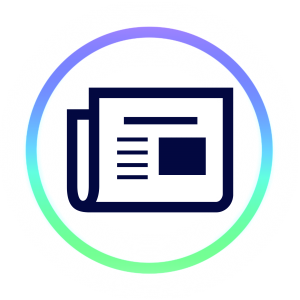The 'Docklands DAO' initiative is a proposal to assist Melbourne neighbourhoods recover from the coronavirus epidemic.
- April 7, 2022
- 3 min read

The Blockchain Innovation Hub at the Royal Melbourne Institute of Technology (RMIT) has published a paper suggesting that a pilot Decentralised Autonomous Organisation (DAO) be implemented to assist certain areas in Melbourne’s CBD recover from the crisis.
The report, which is one of five papers funded by the Victorian government in Australia, discusses how blockchain technology (particularly DAOs) might be utilised to help cities like Melbourne recover from a lack of economic activity during the epidemic and continue operating with the likely persistence of hybrid working arrangements.
The report, which was developed in collaboration with the City of Melbourne, the state government, and local businesses, outlines a precise and implementable plan for a DAO pilot program dubbed “The Docklands DAO” that would take place in the Melbourne CBD’s Docklands area.
The author of the report is Dr Max Parasol, a researcher at the Blockchain Innovation Hub.
He said that DAOs provide cities with a cutting-edge approach to enhance resource allocation, optimise overall efficiency, and create possibilities for strategic placemaking (collectively reimagining and reinventing public spaces) through the use of anonymously pooled data.
A DAO is a decentralised organisation run by token holders and ruled by a set of rules enforced on a blockchain.
“DAOs encourage participation, therefore those who work for the DAO will have more governance capacity and so on… ultimately, the community determines the framework.” Parasol added.
DAOs have seen a rapid global spread as blockchain-based digital voting technologies becomes increasingly utilised by an expanding range of businesses seeking to tap into the potential offered by this technology.
More than 1.6 million people were involved in a DAO at some level by the end of 2021, a significant increase from the 13,000 total DAO participants at the start of the year.
Parasol explained that the Docklands DAO was created to address what he refers to as the “double shock” problem, in which local regions require assistance recovering from economic repercussions of COVID lockdowns while also adapting to the new reality of a hybrid work-from-home model.
Parasol sees DAOs as a necessary step in the development of “smart cities,” which are cities with many types of technology such as voice recognition and movement sensors for collecting certain data.
“Smart cities were initially designed as public private partnerships with governments and companies who collect data and then reverse engineer that data to make a smart city.”
“Instead of centralised partnerships between governments and data services like Cisco, DAO’s remove the ambiguity and centralised control of data from the equation,” Parasol said.
“With the Docklands DAO, you get a specific type of DAO called a ‘data trust’, where information — like people flow data — gets handed over to the DAO in an anonymous and secure manner, then the DAO makes decisions about what to do with that data… It’s all based on community governance.”
DAOs are continuing to grow in popularity, with many communities looking at DAOs as a potential tool to make their own areas more efficient. In September 2017, the ATX DAO was established as an attempt to educate citizens and surrounding governments about cryptocurrency while also funding new initiatives in the community.
Crypto Tax Calculator Australia is a tax calculator application designed to help calculate their taxes they need to pay on their cryptocurrency transactions in Australia. With three plans available to choose from (Free trial, Basic and Advanced), calculating your taxes have never been easier.
